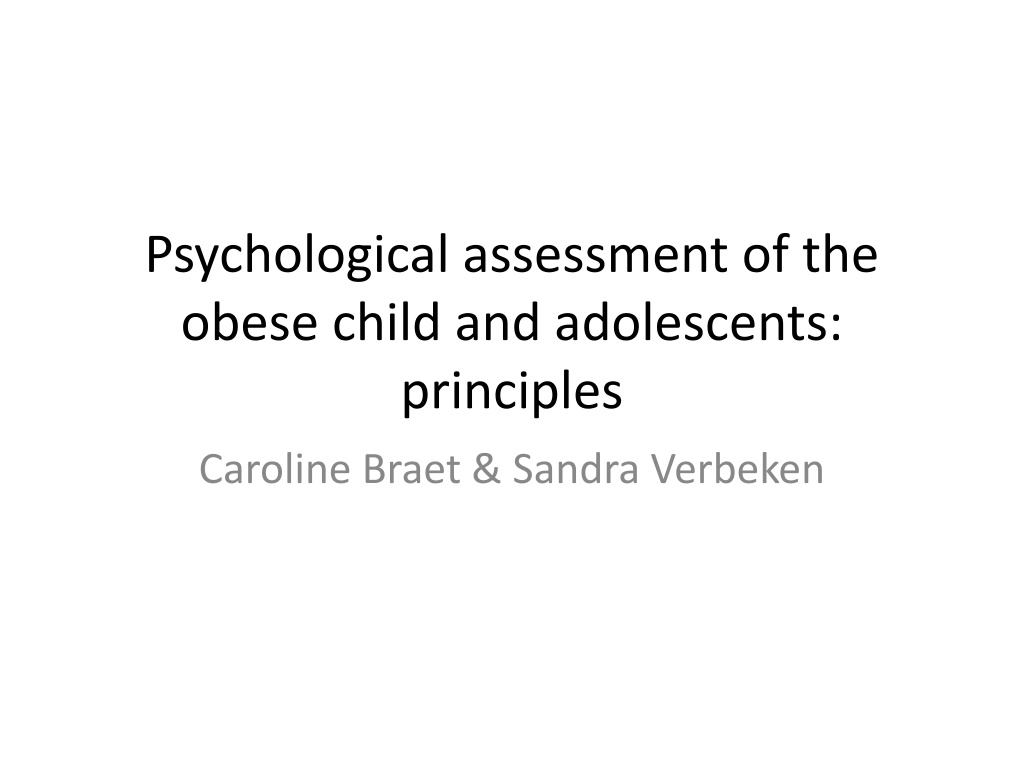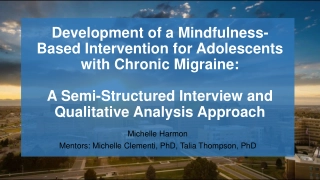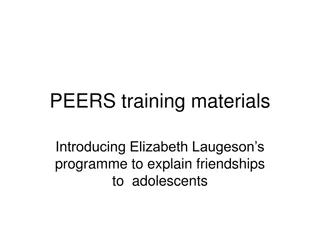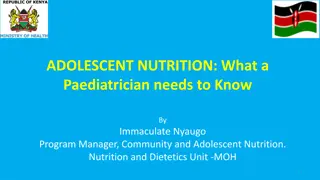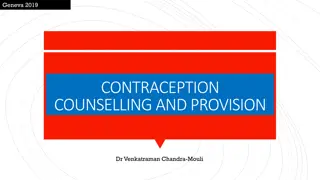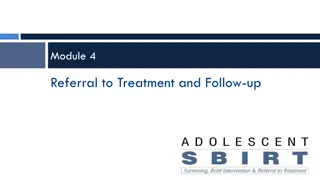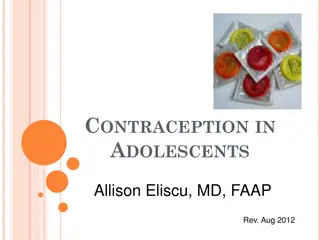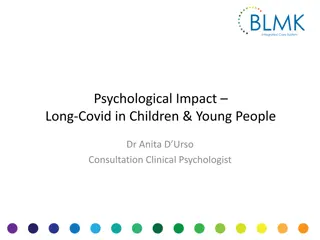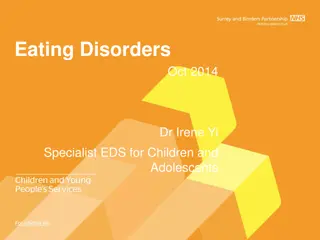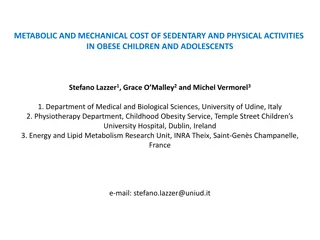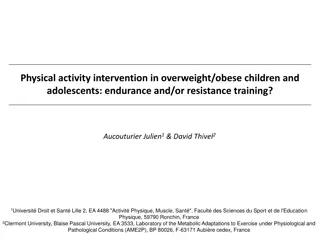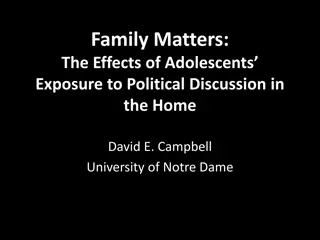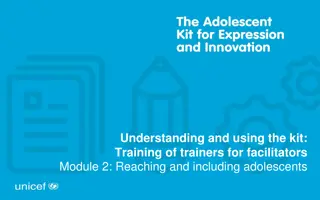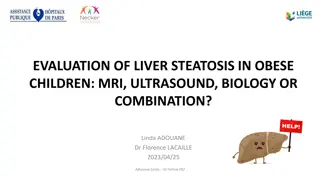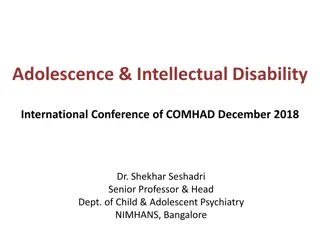Psychological Assessment of Obese Children and Adolescents
Principles of psychological assessment in obese children and adolescents are discussed, including the Dietary Restraint Theory (DRT), Affect Regulation Theory (ART), Reinforcement Sensitivity Theory (RST), and Diathesis-Stress Model (DSM). These theories explore the cognitive, emotional, and environmental factors influencing eating behaviors and weight management. Various assessment tools such as questionnaires and interviews are highlighted for evaluating different aspects of eating behavior and psychological well-being in obese youth.
Uploaded on Sep 30, 2024 | 0 Views
Download Presentation

Please find below an Image/Link to download the presentation.
The content on the website is provided AS IS for your information and personal use only. It may not be sold, licensed, or shared on other websites without obtaining consent from the author. Download presentation by click this link. If you encounter any issues during the download, it is possible that the publisher has removed the file from their server.
E N D
Presentation Transcript
Psychological assessment of the obese child and adolescents: principles Caroline Braet & Sandra Verbeken
The Dietary Restraint Theory (DRT) DRT: the cognitive control over eating fails under distress or fatigue overeating Dietary restraint = the cognitieve preoccupation with weight, shape and food restriction Dieting = the actual use of weight control practices to reduce energy intake Assessment: Questionnaires: DEBQ, EDE-Q, EDI Interview: EDE
The Affect Regulation Theory (ART) ART: eating in the absence of hunger is an effort to regulate negative emotions Food: Provides comfort on a psychological level Reduces arousal on a biological level Distracts from emotional state Overshadows negative affect Assessment: Questionnaires: DEBQ, CBCL, CDI, SPPC Interview: KID-SCID
Reinforcement Sensitivity Theory (RST) RST: high reward sensitive (RS) children show an increased responsiveness to food. The presence of food leads to an automatic approach reaction thereby ignoring feelings of satiety. RS: reflects functional outcomes fo the behavioural activation system (BAS) Obese children find palatable foods more rewarding Assessment: Questionnaires: DEBQ, BIS/BAS Behavioural measure: Stroop task
Diathesis-Stress Model (DSM) DSM: interaction between child characteristics and environment Spirit of the time: thin ideal + strong expectations regarding performances Spirit of the time hypothesis: predicts increase of psychological problems in overweight individuals Assessment: Questionnaires: CFQ, CBCL, CDI, SPPC Interview: KID-SCID
